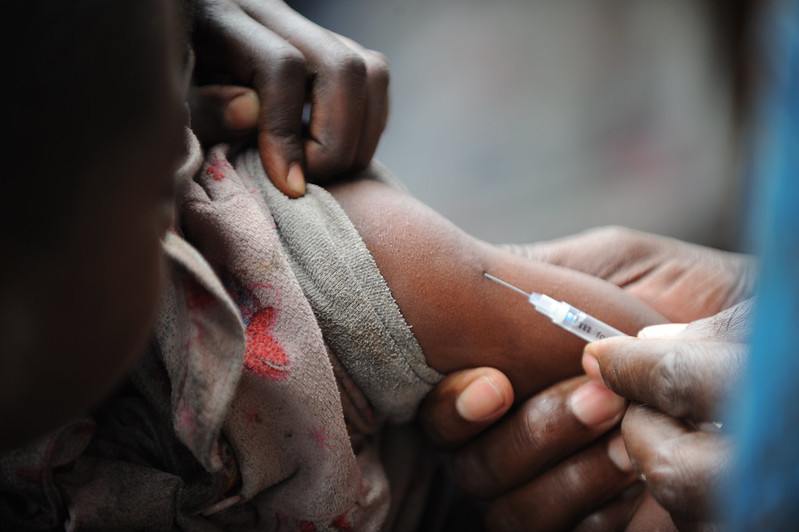DRC Begins Mpox Vaccination Program
 In October 2024, the Democratic Republic of the Congo (DRC) began its official vaccination scheme against Mpox, following a nationwide outbreak. First detected in the country more than 50 years ago, Mpox is a viral infection that can cause fatal illness. The emergence of a new strain in 2023 led the World Health Organization (WHO) to declare the recent outbreak a “global health emergency” in August 2024. Two months later, following 30,000 recorded cases and more than 900 deaths as of October 2024, the DRC’s Ministry of Public Health is beginning the rollout of hundreds of thousands of vaccines as the start of its official Mpox vaccination program.
In October 2024, the Democratic Republic of the Congo (DRC) began its official vaccination scheme against Mpox, following a nationwide outbreak. First detected in the country more than 50 years ago, Mpox is a viral infection that can cause fatal illness. The emergence of a new strain in 2023 led the World Health Organization (WHO) to declare the recent outbreak a “global health emergency” in August 2024. Two months later, following 30,000 recorded cases and more than 900 deaths as of October 2024, the DRC’s Ministry of Public Health is beginning the rollout of hundreds of thousands of vaccines as the start of its official Mpox vaccination program.
Provisions from the EU
To curb the spread of the virus, the DRC relies on the European Union (EU), donation of 265,000 MBA-BN vaccines, with the help of the U.S. Government, Gavi and Africa CDC. These vaccines require two shots administered one month apart and are available only to adults, according to UNICEF.
With a population of more than 100 million, this means there is a limited amount of doses, so officials have had to target the campaign to those most vulnerable to Mpox. So far, the campaign has focused on the country’s North Kivu and Equateur provinces, the two regions that have recorded the highest number of cases. Within these areas, the Ministry of Health will provide the doses to the most at-risk groups, such as those with existing health problems. UNICEF has coordinated the transport and delivery of the vaccines, as well as the storage and shipment across the DRC.
Further Expected Doses
Although officials in the DRC are currently working with a limited supply of vaccines, the nation has also signed an agreement with the government of Japan, which promises the supply of LC-16 vaccines. LC-16 only requires one shot for immunisation and is currently the only one that has approval for children. One of the most disproportionately impacted, children under 15 are some of the most vulnerable to the virus, accounting for 60% of all recorded cases and 80% of deaths in the DRC, according to UNICEF.
Logistical Difficulties
Alongside limited availability, officials have also faced difficulties when planning the implementation of the Mpox vaccination program itself. Vaccines must be kept as low as -20 degrees Celsius, and, once defrosted, need to be used within 40 days to be effective. Officials are therefore working with a limited time frame in which they can transport and administer doses from the central storage facility in Kinshasa. This poses particular difficulty for the nation’s more rural areas which take longer to reach, an issue that has only been exacerbated by the ongoing conflict in the DRC between the government and rebel groups. This has made access to rebel-controlled regions much more limited and therefore made the transportation of medical resources such as vaccines to these areas much more difficult.
Government efforts, educational campaigns and attempts to raise awareness about the virus, and vaccines are just some of the ways the DRC is currently working to combat the spread of Mpox. Its collaboration with international organizations has proved key to the start of the Mpox vaccination program, and further provisions from nations such as Japan will hopefully allow for the continued suppression of the virus.
– Izzy Tompkins
Izzy is based in Leeds, UK and focuses on Global Health and Politics for The Borgen Project.
Photo: Flickr
